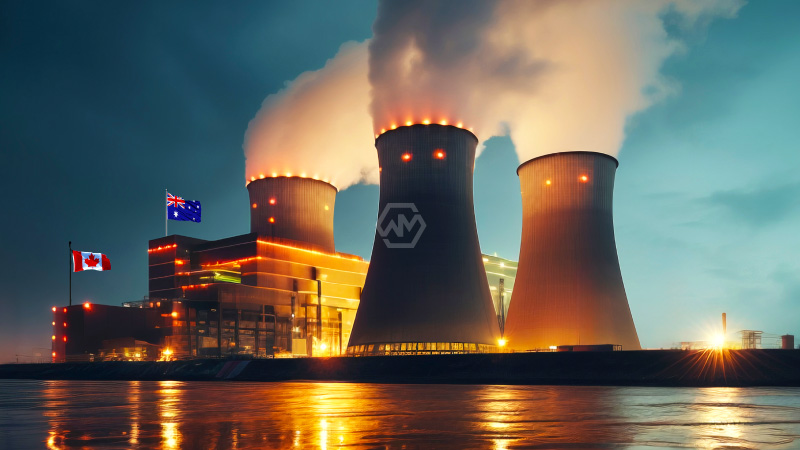- Ontario generates 60% of its energy from nuclear power using CANDU reactors.
- Canadian officials refute claims of $6 billion in annual subsidies for nuclear power.
- Waste management remains a significant challenge for the nuclear industry.
Ontario’s reliance on nuclear power has sparked debates over the true cost of this energy source. While Canadian officials deny claims that Ontario’s nuclear industry receives $6 billion in subsidies annually, they acknowledge that some funding supports research facilities like Chalk River.
The Nuclear Power Paradox: Cost Efficiency vs. Waste Management
Despite the economic advantages, managing nuclear waste continues to be a significant hurdle. Canada has made strides in developing waste disposal solutions, such as the Near Surface Disposal Facility at Chalk River. However, permanent solutions for high-level waste remain elusive, and local opposition to waste facilities persists, highlighting a critical challenge for the nuclear industry.
Canadian officials have pushed back against claims that Ontario’s nuclear industry is heavily subsidized. Energy Minister Chris Bowen’s assertion of a $6 billion annual subsidy has been disputed, with industry experts clarifying that most of this funding is allocated to research activities at facilities like Chalk River. Ontario’s power generation companies operate in a regulated market, ensuring that the cost of electricity remains competitive without extensive government intervention.
While cost efficiency is a notable advantage of Ontario’s nuclear model, the challenge of waste management cannot be ignored. Canada is developing the Near Surface Disposal Facility at Chalk River to handle nuclear waste, incorporating advanced leak detection systems and environmental monitoring measures. Despite these efforts, the lack of a permanent solution for high-level waste continues to pose a significant challenge.
Local communities and Indigenous groups have voiced concerns about nuclear waste facilities, reflecting broader societal apprehensions about living near such sites. Building trust with these communities and finding a long-term disposal solution are crucial for the sustainability of nuclear power. The Canadian experience underscores the need for transparent communication and robust safety measures in managing nuclear waste.
Canada’s nuclear energy model provides valuable insights into the benefits and challenges of nuclear power. While it offers cost-efficient energy production, waste management remains a critical issue that must be addressed to ensure the long-term viability of nuclear power.
“The reality is still that despite all the assurances, most people don’t want to live near nuclear waste.”
– Ole Hendrickson, Concerned Citizens of Renfrew County



